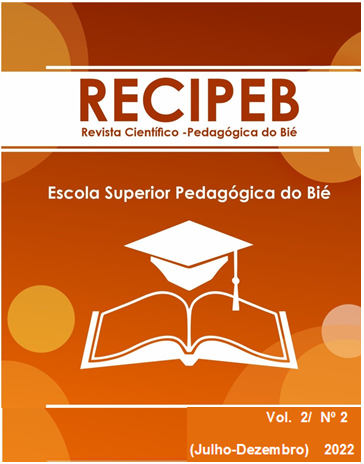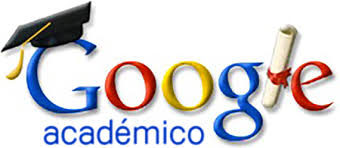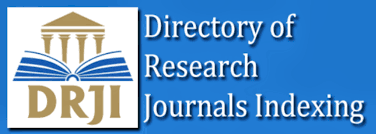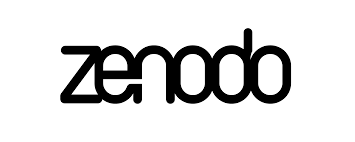Methodological actions to solve problems in the teaching-learning process of Linear Algebra
Keywords:
Teaching-learning, Linear Algebra, problem solving, methodological actionsAbstract
The present paper proposes set of methodological actions, with the aim of contributing to the resolution of the problems concerning to the teaching-learning process of the Linear Algebra at the initial of teachers training process of Mathematics by using the Derive device at ISCED-Huambo, where the was applied the methodologies(quantitative and qualitative) were mixture with an exploratory research, whereby a documental, analysis, questionnaire and the statistical methods were fundamental for the investigation. With this investigation we expect an improvement on the teaching quality of Linear Algebra of students on first year of Science of Education on Mathmatics teaching field at ISCED-Huambo .The students face the difficulties in the contents related to the solve problem of Linear Algebra by using new technology system, which helped them to find an answer of their questions of problem situation, which motivated the researcher to develop the topic of this survey with the aim of contributing to the achievement of the quality in the teaching of Linear Algebra, which resulted in the elaboration of set methodological actions for the resolution of problem in Linear Algebra classes, organized according to the teaching indicators carried out, not just contextualized, basing on the complexity degree of the students of the Linear Algebra at ISCED-Huambo
References
Añorga, J. (2008). La Parametrización en la investigación educativa. Material Impreso. La Habana, Cuba: Instituto Superior Pedagógico “Enrique José Varona.
Ballester, S. etal. (1992). Metodología de la enseñanza de la matemática Tomo I. 2ª Edição.La Habana, Cuba: Editorial Pueblo y Educación.
Ballester, S. P. (1992). Metodología de la enseñanza de la matemática Tomo II. La Habana, Cuba: Editorial Pueblo y Educación.
Campistrous, L. Y. (2000). Indicadores e investigación educativa. Soporte digital. La Habana, Cuba: Instituto Central de Ciencias Pedagógicas.
Dante, L. (2003). Didáctica de resolução de um problema em Matemática. 1ªe 5ª sérieis. Para estudantes do curso Magistério e profesores do 1ºgrau (12º ed ed.). São Paulo, Brasil: Ática.
Ferreira, A. B. (2001). Miniaurélio Século XXI: O minidicionário de Língua Portuguesa. Rio de Janeiro: Nova Fronteira.
Guzmán, M. (2012). Tendências Inovadoras no Ensino da Matemática. Obtido em 4 de Maio de 2019, de www.oei.org.com/oeivirt/edmat.htm
Hernández,S. R., Fernández, C., & Baptista, M. (2010). Metodología de la investigación. 5ª ed. Mcgraw-Hill / Interamericana Editores, S.A. de C.V.
Libâneo, J. C. (2015). O processo de ensino-aprendizagem actual.Lisboa: McGraw
Hill.
Lima, S. (2005). La mediación pedagógica con uso de las tecnologías de la información y las comunicaciones (TIC).La Habana, Cuba: Editorial Educación Cubana.
Manuel, I. B. (2016). Modelo didáctico para la introducción de las aplicaciones intra y extra matemáticas del álgebra lineal.(Dissertação de mestrado) Santa Clara-Cuba: Universidad Central-Marta Abreu de Las Villas.
Mendes, M. D., & Manuel, T. (2016). Investigação em Educação: Opções metodológicas para pesquisa científica (1ª ed.). Benguela: Kat editora.
Mendonça, M. (1993). Problematização: Um caminho a ser percorrido em Educação Matemática. (Tese de Doutoramento).Campinas:UNICAMP.
Miranda, A. S. (2015). Resolução de problemas como metodologia de ensino: Uma análise das repercussões de uma formação continuada. Porto Alegre. PUCRS.
Polya, G. (1978). A Arte de Resolver Problema. Rio de Janeiro: Interciência.
Pozo, J. I. (1998). Solução de problemas: Aprender a resolver, resolver para aprender. Trad. NEVES, B. A.
Quitembo, A. D. (2010). A formação de Professores de Matemática no Instituto Superior de Ciência de Educação de Benguela-Angola. Um estudo sobre o seu Desenvolvimento. Benguela, Angola: Univesidade de Lisboa.
Rey, A. A., Musholovela,J.S.A.,& Fernández,A.G.( 2019). La virtualización en el proceso de Enseñanza- Aprendizaje de las Ciencias Exactas. Obtido em Maio de 2019.
Sacristán, J. G. (2000). Comprender y transformar la enseñanza ( 4ª ed ). Madrid: Morata,Disponível em:http:www.gestaoescolar.diadia.pr.gov.br
Sousa, J.B. (2016). Caracterização Teorica de alguns aportes sobre o uso das Tecnologias de Informação e Comunicação na Educação. Huambo:Novas Edições Académicas
Vilelas, J. (2009). Investigação: o processo de construção do conhecimento. Lisboa: Silabo.
Wapinda,M. C. (2017). Estratégia didática para a aprendizagem da Geometria Analítica na formação inicial de professores de Matemática no Huambo, República de Angola.(Tese de Doutoramento). Universidade de Ciências Pedagógicas “Enrique José Varona”
Zerpa,N. J. (2012). Estrategia Pedagógica de capacitación para el perfeccionamiento del modo de Actuación profesional de los docentes de la aldea símon jiménez de la Universidad Bolivariana de Venezuela. Universidad Bolivariana de Venezuela.
Downloads
Published
How to Cite
Issue
Section
License
Copyright (c) 2023 João Samoma Fernando

This work is licensed under a Creative Commons Attribution-NonCommercial-ShareAlike 4.0 International License.
















